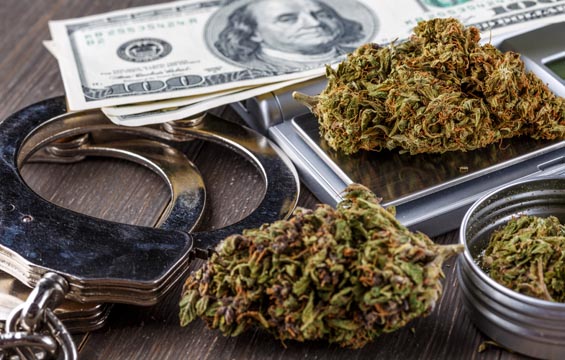Criminal Defense
Drug Crimes
POSSESSION FOR PERSONAL USE
In California, it is a crime to knowingly possess any useable amount of any controlled substance, unless under the prescription of a physician, dentist, podiatrist, or veterinarian licensed to practice in California. Controlled substances in California include, but are not limited to; fentanyl, heroin, PCP, Ecstasy, LSD, cocaine, morphine, OxyContin, Vicodin, methamphetamine, Ritalin, steroids, testosterone, Xanax, Tramadol, Ambien, and others. Possession of a Controlled Substance is a misdemeanor, punishable with up to one year in jail, and up to a $1,000 fine.
POSSESSION FOR SALE
If a controlled substance is possessed for the purposes of sale, it is a felony, and punishable with up to 4 years in prison, and a fine of $20,000. The state is not required to have direct evidence of sales (such as a witness to a drug transaction) and may rely on indicia of sale as evidence that the controlled substance possessed was possessed for the purposes of sale. Indicia of sale include, but is not limited to; large amounts of the controlled substance, large amounts of cash, the packaging of controlled substances into small specific amounts, the presence of baggies or scales, and numerous visitors of short duration at the location of the alleged sales.
POSSESSION OF MARIJUANA

In 2018, California legalized recreational marijuana use for people age 21 years or older, making marijuana no longer a controlled substance under California law. However, Possession of Marijuana for Sale is a crime if the individual or business does not have a state-issued license to sell marijuana. Possession of Marijuana for Sale is a misdemeanor punishable with up to 6 months in jail and a $500 fine. However, Possession of Marijuana for Sale can be punished as a felony with up to 4 years in prison and a $10,000 fine if the person has certain prior criminal convictions, or intends to sell illegally to minors.
POSSESSION OF PARAPHERNALIA
It is also a crime to possess any device, instrument, or paraphernalia used for unlawfully injecting, smoking, or otherwise consuming a controlled substance. Such items include, but are not limited to; smoking pipes, needles and syringes, and burnt spoons and bottlecaps. Possession of Drug Paraphernalia is a misdemeanor punishable with up to 6 months in jail and a $1,000 fine.
UNDER THE INFLUENCE
It is also a crime to be “Under the Influence” of a Controlled Substance. A person is “Under the Influence” of a controlled substance if they willfully take or use a controlled substance, without a prescription, and it has affected their nervous system, brain, mental condition, muscles, or physical condition in any detectable manner. Unlike Driving Under the Influence, or Public Intoxication, impairment or other misconduct is not required to prove a charge of Under the Influence of a Controlled Substance. Under the Influence of a Controlled Substance is a misdemeanor punishable with up to one year in jail.
PUBLIC INTOXICATION
If a person is in public, and Under the Influence of alcohol or a controlled substance, then they can be charged with Public Intoxication, a misdemeanor punishable with up to 6 months in jail and a $1,000 fine. Unlike the crime of Under the Influence of a Controlled Substance though, this crime requires the person be in public, and be unable to exercise reasonable care for his or her own safety, or the safety of others.
DRUG DEFENSES
There are several defenses to drug crimes. If what the police found was not a controlled substance, either due to misclassification, or a valid prescription, then the possession is lawful. If the controlled substance didn’t belong to you, and belonged to someone else, that is a compete defense. If you didn’t know the substance was a controlled substance, and believed it to be something else that is lawful to possess, that is a complete defense. It is also common in drug cases to attempt to get the actual drugs or indicia of sale evidence thrown out of the case (i.e. suppressed) by proving the police broke U.S. Constitution Fourth Amendment search and seizure law to obtain such evidence.
